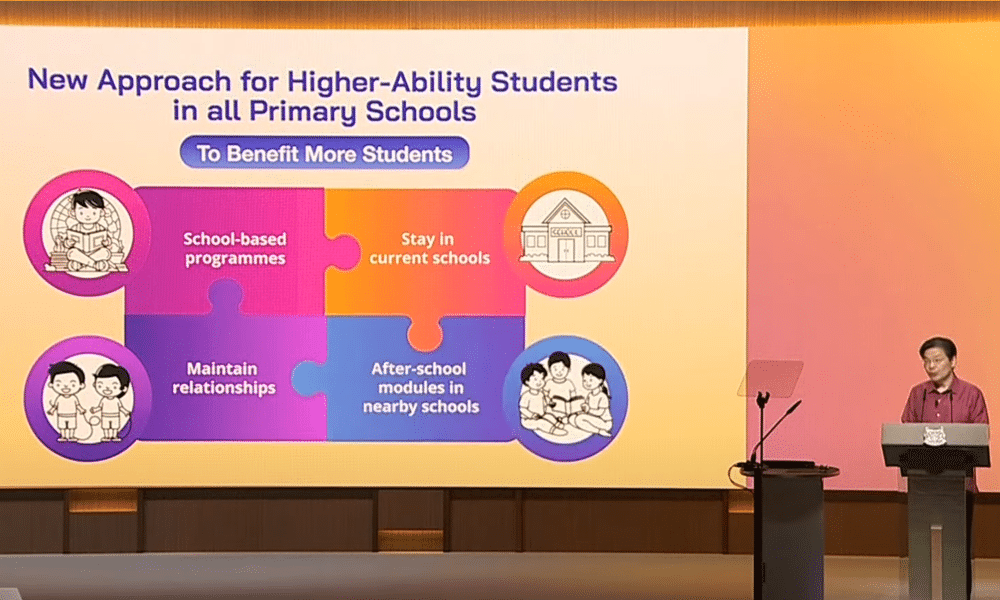The Gifted Education Programme (GEP), a longstanding initiative designed for intellectually gifted students, will be phased out and replaced with a new framework aimed at supporting high-ability learners in all primary schools.
This announcement was made by Prime Minister Lawrence Wong during his first National Day Rally speech on Sunday, 18 August.
Mr Wong revealed that the GEP will be “discontinued in its current form” as part of a broader effort to make educational opportunities more inclusive and accessible to a larger group of students.
“We will equip the schools to identify their own high-ability learners – so this will benefit more students,” he stated. The new approach will allow students to remain in their current schools, avoiding the need to transfer to specific institutions that offer the GEP.
This change is intended to help students maintain existing relationships with their peers and teachers while receiving enhanced educational support.
The GEP, introduced in 1984, has been a selective programme, identifying around 1% of the student cohort through a rigorous two-stage exercise in Primary 3. Those selected typically join the programme in Primary 4, with nine primary schools currently offering the GEP, including Anglo-Chinese School (Primary) and Raffles Girls’ Primary School.
The decision to overhaul the GEP reflects a significant shift in Singapore’s education philosophy. Mr Wong emphasised that the government’s focus is on catering to the diverse needs of all students, not just those who excel early.
“Every child is different,” he said, “we take care of all of them, not just the early bloomers and high-ability students.” He shared his own experience growing up in the heartlands, attending neighbourhood schools, and highlighted the government’s commitment to helping every child realise their full potential, regardless of their starting point.
Under the new framework, students identified as high-ability learners will have access to specialised school-based programmes designed to stretch their strengths and interests.
Additionally, some students may be invited to participate in after-school enrichment modules at nearby schools, providing opportunities to further develop their skills and interact with other high-ability learners.
While acknowledging the competitive nature of Singapore’s education system, Mr Wong stressed the importance of “refocusing” on the true objectives of education: sparking a joy for learning and helping every child reach their potential. He also underscored the need for strong support for teachers and school leaders, who play a critical role in this process.
This move follows other significant changes in Singapore’s education landscape, including the introduction of a new PSLE scoring system and the removal of streaming in secondary schools.
Despite these changes, Mr Wong acknowledged that not everyone is convinced that “every school is a good school,” citing parents who continue to seek his help in securing spots for their children in preferred schools.
Mr Wong also highlighted the government’s commitment to providing multiple pathways for students, particularly those with vocational and technical talents.
He pointed to success stories like that of Mr Jensen Low, a graduate of ITE who rose through the ranks in the culinary industry to become a vice-president in an international company.
In April, during a parliamentary session, Assoc Prof Jamus Jerome Lim inquired about the number of GEP students who had applied for Direct School Admission (DSA) into secondary schools over the past five years. In response, Minister for Education Mr Chan Chun Sing revealed that around 200 GEP students were admitted to secondary schools via DSA-Sec each year, a small proportion of the total student cohort.
The Ministry of Education is expected to announce more details about the new approach for high-ability learners in the coming months

